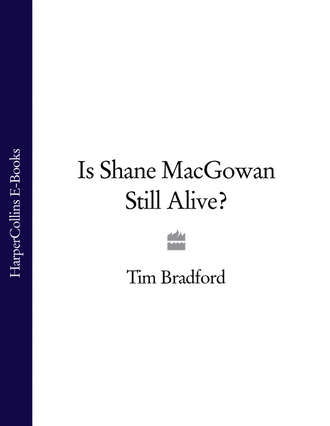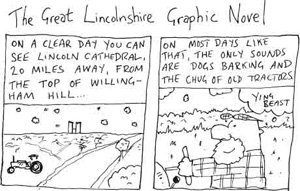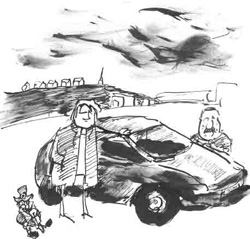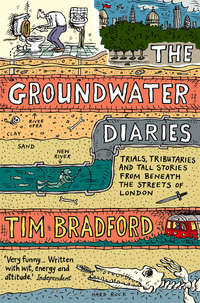
Полная версия
Is Shane MacGowan Still Alive?
I had had strange fears that either mine or Terry’s short-term memory tanks would give out and one of us would forget about the trip. The thing was, Terry and I had one thing in common, a dramatically deficient short-term memory system. We could both recall events which took place in the sixties, news broadcasts, the colour of the sky on a spring morning, what the three-year-old girl next door wore at her birthday party, where we were when we first heard ‘Yellow Submarine’, the Radio Times with Philip Madoc as an Indian warrior in Last of the Mohicans on the cover, how we felt when we could count to ten, Thunderbirds, Captain Fantastic and Mrs Black, the metallic and salty taste of Knorr soup, the lavender-water smell of great grandparents’ houses, recurring dreams of flying and five-year-old girlfriends.
But ask us what we did yesterday or where we put that thing we were holding five minutes earlier, you know, the thing, and we were lost. We both had our theories about this. I felt that there was a little tank where the short-term memories were left to ferment for a while into long-term memories, after which they would progress to the much larger long-term memory tank. Our short-term memory tanks were just too small for the amount of sensory data we experienced in our frenzied lives, so it all got pushed into the long-term memory tank, which could not be accessed for at least eighteen months. The fantastic thing was that we’d be going on a trip together which neither of us would remember for a year and a half. The thing was, Terry and I had one thing in common, a dramatically deficient short-term memory system.

Tim’s short- and long-term memory-tank system
Terry’s theory (I think – my memory’s not great) was that we both drank far too much, and this destroyed the synapses responsible for short-term memory. The high of drinking mirrored the positivity of childhood. This similar mood allowed us to access memories that normal people might have forgotten.
Terry’s short-term memory system:

Terry is Neal Cassady and I am Jack Kerouac. He’s full of energy and madness and I sort of write it all down. Or maybe I am David Cassidy and Terry is Jackanory, always telling crazy stories and appearing every evening at about 5 o’clock. Actually, this On the Road analogy is a bit crap, because although Kerouac did all the writing, it was Cassady who did the driving. Kerouac never drove. Ever. He bummed lifts. Either in cars or on freight trains. Terry can’t drive either. Though he claims he has been able to since the age of six – he just doesn’t have a licence.
Me and Terry in the car would take over some little community in the west of Ireland and terrorise the locals – annoy ‘cops’ and flirt with chicks in roadside tourist gift shops, just like those lads in Easy Rider. We were bohemians, outlaws, outcasts, in the grand tradition of mad partnerships:
• Kerouac and Cassady
• Hunter S. Thompson and his lawyer
• Fonda and Hopper
• Boswell and Johnson
• Bob Hope and Bing Crosby
• Dean Martin and Jerry Lewis
• Abbott and Costello
• John Noakes and Peter Purves
• Sandy Gall and Reginald Bosanquet
• Pippin and Tog
• Tony Blair and Gordon Brown
Using telepathy and ‘special’ mind powers to make Terry ring:
Deep breaths, Tim. Get comfortable. Put your memory tanks onto ‘timer’ mode (Economy 7 will do).
Ring ring ring ring ring. Terry Terry Terry Terry Terry.
If Terry doesn’t ring
The leprechaun will sing
Ring ring ring Terry ring
I make a decision to take the singing leprechaun (that I’d bought on the Swansea – Cork ferry) with me if Terry doesn’t show:
If Terry didn’t show I had already had the thought that I might take my little green fabric friend with me. (He has the voice of a very squeaky Irish jockey and sings the hits of the day, particularly at Christmas. Well, no, actually, all he sings is ‘When Irish Eyes are Smiling’.) My singing leprechaun comments on the action now and then but can’t influence it. If I’m doing something wrong, or he wants to say ‘no’ he’ll sing ‘When Irish Eyes are Smiling’ (possibly recorded by the wheelchair synth player of Fulham Palace Road) when I press his belly. If he’s feeling happy and positive, the singing leprechaun stays quiet. I think. I can never be sure. The singing leprechaun would be Jack Kerouac and I would have to be Neal Cassady, which meant a hell of a lot more work for me. I went out to pack the car. I must have been out for no more than ten minutes but when I got back there was a message on the answer machine from Terry.
The message on my answer machine from Terry:
‘Hello hello. Yeah, er, hi Tim, it’s Terry. Er, I’m afraid I’m going to have to be really boring and middle-aged and blow you out this weekend. Yeah, er, I’m just feeling really knackered at the moment. Sorry mate. Speak to you when you get back. Erm, give us a bell sometime if you get a chance cheers bye.’
Terry had phoned from some pub in the centre of town. Which meant I couldn’t ring him back to try and get him to change his mind. The singing leprechaun looked up at me with searching eyes. I pressed his little tummy and he sang me a beautiful version of that old Irish song. I collected the rest of my stuff, turned off the heating and went out to the car.
One o’clock in the morning and it was just me, the car and the cold inky-orange streets of West London – incredibly, I’d managed to get to the top of Fulham Palace Road without running over a tramp or one of those pale but high-spirited late-night youngsters who sometimes hang around outside twenty-four-hour shops shouting at each other in cod-Jamaican accents and looking as though they’ve recently overdosed on casual sportswear.
Feeling just a little hypnotised by the enthusiastic purr of the Corsa’s 1.4L engine, I shifted up and down gears with all the grace of a bull elephant doing needlestitch, then coasted up through an almost deserted and ghostly Shepherd’s Bush to the roundabout, then up the A40. Hammersmith is a gateway in and out of London: big roads take you west, the tube and the A4 take you into town. It’s good for country boys like me who don’t know where the hell they want to be – in the city or out in the sticks. I paused for a moment to change down into second, then a manoeuvre so simple even a little kid in a pedal car could do it – get onto that motorway and head for Wales. But not me – God knows what I was playing at but I soon realised I was heading back into town towards the West End and the City. Wrong direction again. The Singing Leprechaun in the passenger seat said nothing as I came off at the next slip road at Royal Oak station, did a U-turn near some claustrophobic-looking Georgian townhouses then back out onto the road underneath the A40. Is it left or right? Left or fucking right? ‘When Irish Eyes are Smiling’, sang the Singing Leprechaun, which I took to mean a left. I had another three hundred miles to go along the A40, M6 and loads of other Ms and As. I knew I was bound to get lost now and again and didn’t really care, but if I fucked up like this every three or four miles I wouldn’t make it to the ferry for at least another couple of days.
I’ve never liked driving much. Not in cities anyway. I’ve never really trusted myself with all that metal and glass. When I was seventeen my parents give me a choice of driving lessons or a record player for my birthday. To have a car was a passport to success in Lincolnshire, particularly with women. The more sought-after girls lived out in the back of beyond, the daughters of farmers or village schoolmasters. By choosing not to drive I was also choosing the town girls (or, in reality, choosing no sex), choosing fresh air, choosing two feet, choosing music.2 While some of my friends got into wing mirrors, exhausts, turbo brum-brum camshaft wheelie gauges etc., I was into free jazz, new-wave pop, electro and Northern industrial music. In a way it was still an attempt at pulling – a girl would come round and I’d leave my Teardrop Explodes French import EP, Ornette Coleman Atlantic albums, or Cabaret Voltaire and Afrika Bambaata twelve-inch singles somewhere obvious for her to see (like on the front doorstep, or perched on the toilet bowl). A not very successful technique, naturally. Perhaps I should have hung them from the ceiling.

If there was a party somewhere out in the sticks you had to befriend a gang which had a designated driver. Gangs were like little tribes and were made up of different character types who had specific roles to play. You’d have the son of a respected teacher or lawyer who might know some of the local cops and sweet-talk them. You’d have a hard nut in case your gang was challenged by another gang (particularly from another town) – he was a sort of champion. You’d have a good-looking babe magnet who would lure the females or act as a frontman when the gang went hunting as a pack. You’d have a leader, the charismatic brains, a talker and ideas man who would say let’s go here, let’s go there. You’d have a hippy drop-out alternative culture kind of guy who would be the comedy character. And finally, and most importantly, you’d have a driver. The driver was a monklike figure who had eschewed the pleasures of alcohol in return for approval amongst a group who otherwise might not have given him the time of day. It was a social transaction. The driver got camaraderie and social acceptance. The gang got someone to ferry them from village pub to town pub to party to nightclub. There was a small group I knew who would occasionally let me hang around on the periphery and smile inanely at their antics, who had a driver known simply as ‘Driver’. We’d all be completely plastered and he’d just drive, with a big happy grin on his face. I never understood it. Never got inside his head. Perhaps I never really worked out the rural vibe. It exists in Ireland too, that need and importance to have a car (like horses would have been to my great grandmother’s people). If you’re out in the country and you don’t have a car you’re fucked. Or, in the case of trying to get off with the daughters of village schoolteachers, not fucked.

I adjusted the mirror, got into cruise mode, got comfortable. A straight run, give or take a few confusing motorway exits in the West Midlands. Undeterred by my dysfunctional directional sense, I put some lachrymose alternative country sounds onto the stereo and turned up the volume as much as I could without the dashboard vibrating out of its position and the car falling to pieces. First up, ‘Windfall’, by Son Volt, ‘Houses on the Hill’ by Whiskeytown, ‘Snow Don’t Fall’ by Townes Van Zandt, ‘Oh Sister’ by Dylan. I got a tingly feeling at the romanticism of it all, until I remembered I was still inside the M25. As the car rumbled out of west London towards Hanger Lane, then through the tunnel as though escaping from some concrete nightmare and out onto the motorway and freedom, the harmonies got richer (‘Both feet on the floor, two hands on the wheel, let the wind take your troubles away’).
Driving through England on motorways is not an exciting thing to do. Driving through England on motorways at night is incredibly boring. Like Phil Collins singing about watching paint dry on a continuous tape loop on the radio. I sometimes wonder what proportion of the countryside you can see from a motorway is actually attractive. Motorways were specially designed so the country would look shit and people would think the motorway is more attractive so they should build more of them. I accept that the country hasn’t been completely covered in motorway and concrete. After all, when you’re lost in the countryside you can drive around for days looking for a way out – you won’t even find a pub or shop or person who speaks with a recognisable accent, never mind a motorway. But when you are on the motorways it does seem as though that’s all there is. Especially around Birmingham. Everything is motorways and junctions, lights of the road, lights of cars, more junctions, road signs, concrete, cars, tarmac, more cars and more lights, that reach into the distance like a vicious, never-ending torch-carrying mob, a mob that wants to kill the monster but you want to protect him something in his eyes suggests a vulnerable tortured soul they’re getting nearer no stop aarrrghh … Anyway, after Birmingham I started to fall asleep at the wheel. As you do as soon as you get anywhere near Birmingham.3 I came off a slip road and stopped for petrol at a little garage. The lanky spotty floppyhaired nineteen-year-old creature behind the counter looked at me with the doomed sad eyes of one too used to sickly bright lights and the smell of petrol. I was feeling very tired so bought some Lucozade,4 that sickly sugary drink with the eerie nuclear fall-out orange glow.
Back on the road, I came off at a roundabout near Shrewsbury and took the first left turn. Standing at the side of the road was a hitcher. I was nearly asleep again and lolling backwards and forwards, half dreaming about rural Ireland, the sea, mountains and curly-haired Australian actresses. Picking up a hitcher is an instinctive decision. You don’t have time to analyse them or hand out a questionnaire. In an ideal world none of us would be in a hurry and we’d have time to interview a prospective hitcher over coffee in some transport café:
Driver: So, where do you see yourself in five hours’ time?
Hitcher: I think London is the place for me, all things considered.
Driver: What skills can you bring to a car drive?
Hitcher: I can put tapes into the cassette player and can make light conversation peppered with the occasional witty but shallow observation.
Driver: Well, thanks for spending time talking to me. I’ve a few more candidates to see and I’ll let you know in a few hours’ time.
Hitcher: Great, thanks very much. Bye.
Driver: Bye then.
An alternative would be to swipe a smart card into a hitcher checkpoint and an upcoming driver can check to see if you’re compatible.
Of course, the reality is SCREEEEEEEEEEEEEEECHH quick get in mate. It’s only when it’s too late that you find you’ve picked up some crazy looking bloke with specs and wild hair like a crazed tinker in a blue waterproof jacket. Or, more commonly, an overweight, spotty type with a moustache. But I needed someone to keep me awake. I’ve fallen asleep at the wheel before and you get a bit of a shock when you suddenly realise you’ve either been driving for twenty minutes in a daze or you’ve driven off a cliff and you’re fifty feet underwater.
I cleared the shite – including the Singing Leprechaun – from the passenger seat onto the floor and told the hitcher to screeeeeech quick get in mate. He was an overweight, spotty type with a moustache and was up and running almost immediately.
‘I didn’t think I was going to be picked up. I’ve been waiting here for two hours. Loads of people went past, then you turned up.’
I did, it’s true. I told him I just needed someone to keep me awake.
‘Feel free to just jabber away,’ I said, carelessly.
He told me he was looking for work. At two in the morning outside Shrewsbury!? He’d hitched over from East Anglia, where he’d been working as a panel beater and putting up marquees and thought Wales might be the land of milk and honey. Zilch and no money more like, I suggested. I told him I was going to Ireland so could drop him off anywhere on the way. He had a sort of bristly squaddie tash with skin so ‘crazy’ he was an exact fifty-fifty cross between Nigel Mansell and Manuel Noriega – if Noriega had had the Jeff Goldblum role in The Fly and Mansell was Geena Davis and they’d both got caught in the ‘pod’ and merged.5 It wasn’t just acne it was something … more sinister.
So, a panel beater eh? That means you get to give World Cup pundits a good kicking then? I asked.
‘No, it’s cars and that,’ he said. His accent was hard to place – maybe half Brummie, half Norfolk.
But it was the marquees thing that was great, he said. He put them up for car races and that, cash in hand. Now the work was gone and he’d had to give up his bedsit. I asked him where he was from. His parents were Irish. His mother still lived in Mayo. That’s where Oasis are from, I said. What? he asked. Mayo. Their mother is from Mayo. They used to go there on holiday. Hmm he said. Anyway, they moved over to Birmingham when he was a kid and he was small and got bullied because of his accent, so decided to lose it and become a Brummie. He’d hated being a kid, he said. Hmm, I said. His father had recently died of a heart attack. He was out of work. He’d got bad skin. It was heartbreaking stuff. I asked him to stick on another country tape. The first song was Patti Loveless’s ‘We Ain’t Done Nothin’ Wrong’.
‘This is a bit sad isn’t it? Have you got any happier stuff?’ No, I said, indignant that he had overstepped the mark with his lack of hitcher etiquette. He started talking about never being able to settle down, always on the move and I asked him if he’d read On the Road by Jack Kerouac. No, never heard of him. I’ve got a copy somewhere in my bag, I said. Want to borrow it? I was coming on all Henry Higginsish here. Nah, it’s OK, he said. I wouldn’t ever read it anyway. I started to nod off again as he droned on.
Hitcher: Life is so sad.
Me: Uh huh. Hmmm.
Hitcher: Marquees bluh bluuuh bluuuh bluuhhh marquees
bluuuh bluuuh bluuuuh.
Me: Car keys? Uh huhh! Hmmmmm!
I stopped at a garage somewhere in Wales and bought us both a sandwich (he didn’t have any money, he said). When we set off again I asked him when he’d last seen his mother in Ireland.
‘Oh a long while,’ he said. ‘But I’ve got cousins in Dublin who I saw a couple of years ago.’ I suggested to him that, since Wales seemed pretty quiet jobwise (although, admittedly, it was the middle of the night) and the Celtic Tiger6 was still so rampant, he should go with me on the ferry and get off in Dublin. It wouldn’t cost him anything. He pursed his lips and thought about it. OK, he could go and see his mother. And his cousins would put him up for a while, until he got a job. But he still wasn’t happy. Think about it, I said. We agreed he’d go as far as Holyhead and then make his mind up.
How many are like him, I thought? Most of the Irish people of my age in London all came over ten years or so ago for the money because there wasn’t anything for them at home7 (though now, of course, things are different). So many people around the world claim Irishness (seventy million apparently). They or their ancestors have all had to leave and the sentimental myths are built up. There’s often a dream of returning. But to what? Sometimes all that’s there is a memory of Irishness, a semi-fictional home, a country they carry in their hearts to salve the rootless detachment. I thought of the folk songs which must have been written by people missing home, like the ‘Fields of Athenry’, or ‘Spancel Hill’. I thought about asking the hitcher to press the Singing Leprechaun’s belly for me. His soulful rendition of ‘When Irish Eyes Are Smiling’ would have been the perfect soundtrack to my mind’s sleepy wanderings.
Being brought up in England in the early seventies meant that Ireland was a constant but not always apparent factor in my life. It began naturally with those crap jokes which always involved an Englishman, a Scotsman and an Irishman – the Irishman naturally always being the fall guy. The Englishman was never anything but maddeningly sensible – you didn’t care what he said or did – the Scotsman sort of sat on the fence, unsure whether to be daft or boring, and the Irishman, the kind of fellow you’d probably get on with if you met him in a pub, would happily humiliate himself, shoot himself, jump out of an aeroplane without a parachute, or refuse to get off with Raquel Welch, in the interests of the narrative. For a while I had a theory that the Irishman in the Irish jokes was actually taking the piss out of the Englishman’s caution (the subvert-from-within philosophy). But I suppose that wasn’t what got the laughs on Saturday evening TV shows like The Comedians where blubber-necked walruses in dinner suits with big lollipop microphones and accents like gravy would entertain a nation (or rather pander to our prejudices), a nation moreover still stuck somewhere in the late 1950s (apart from those few lucky fuckers who actually had a shag and an acid tab in 1967).8

And then, of course, there were the bombs that I’d hear about on the news and not quite understand, bombs that were to do with Ireland. Why England was at war with Ireland (and ‘Ulster’) I could never work out (I knew it was war because the British army were always there in the TV pictures – I read all the war comics so knew the score). In many people’s consciousness bombs and Ireland thus became synonymous. Years later, at the end of the eighties, a paranoid mad distant relation tried to stop me going on a weekend jaunt to Dublin with my mates saying, pleadingly, ‘Them Paddies’ll bomb yer if yer don’t watch out!’



At Holyhead, in the cold flinty early morning light, we were one of the first cars in the queue. We both stared out at a shard of fading orange in the clouds. Go and see your family, I said, seemingly on some kind of repatriation mission. We got out of the car and went to check the ferry times. It would cost him a tenner to come back over. He waddled over to the phone to call his sister, who lived down in the southwest, to see if she would wire him twenty pounds to a bank somewhere in Dublin. It all sounded a bit elaborate to me. But the sister wasn’t there, only the husband, and he didn’t want to do anything until the sister came back. I didn’t understand. Someone in your family asks you for twenty quid – is it that big a decision? (Mad Relation: ‘Yeah but Tim, what if the IRA got their hands on the money, they’d be using it to buy missiles from Libya and that.’) I walked around Duty Free while he sat in the car trying to think what he should do. I got back in and handed over twenty quid, obviously expecting never to see it again. He must have read my mind.
‘You think you’ll never see this money again don’t you, but I promise you as soon as I get in touch with my sister I’ll get her to wire me some money and I’ll send you it straight back – Yeah, I’ll send you it in a couple of weeks, if you give me your address.’ I scribbled it on the back of an envelope and gave it to him.
On the ferry we went down to the front. It was like a big shopping centre with huge cathedral-like windows and an American-style cocktail bar with a Budweiser neon sign. Whatever happened to boats that actually looked like boats, I thought. In the gift shop were some of the Singing Leprechaun’s captive brothers and sisters. I pressed the belly of one of them and a sweet tune rang out. It seemed somehow familiar – where had I heard it before? Then it came to me – it was the famous old ballad, ‘When Irish Eyes are Smiling’. The Hitcher wandered off and I tried to get some kip, thinking of garages, Irishwomen and Terry (I hoped he was regretful but guessed not – not his style, he’d be tucked up in bed sound asleep with a bellyful of good beer and a head full of crosswords).



